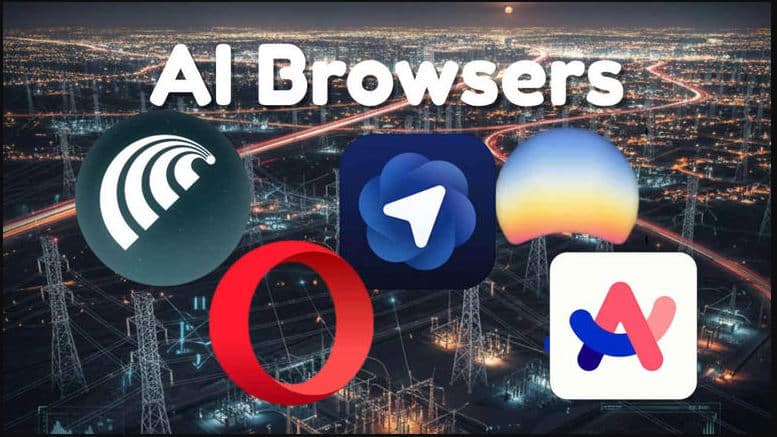Revolutionize Your Email Marketing: How AI is Transforming Campaigns in 2024
Email marketing has long been a cornerstone of digital strategies, offering businesses a direct line to their audiences. However, as consumer expectations evolve and competition intensifies, traditional methods are no longer enough. Enter artificial intelligence (AI), which is reshaping email marketing in 2024 by enabling hyper-personalization, smarter automation, and data-driven decisions. From predictive analytics to content generation, AI is not just a tool—it’s a game-changer. Let’s explore how AI is revolutionizing email campaigns and why adopting these technologies is crucial for staying ahead in 2024.
Hyper-Personalization: Beyond Basic Segmentation
Gone are the days of generic "Dear [First Name]" emails. AI leverages machine learning algorithms to analyze vast datasets, including browsing behavior, purchase history, and even time spent on previous emails. This allows for dynamic content creation, where emails adapt in real time to individual preferences. For example, an e-commerce brand might use AI to suggest products based on a user’s recent searches or tailor subject lines to match a recipient’s interests.
Studies show that personalized emails generate 6x higher transaction rates than generic ones. AI takes this a step further by predicting what each user might need next, creating a seamless experience that feels tailored to them.
Automated Campaigns: Efficiency Meets Precision
AI automates repetitive tasks, freeing marketers to focus on strategy. Tools like predictive send timing use AI to determine the best time to send an email based on a user’s past engagement. Meanwhile, automated workflows trigger personalized messages for actions like abandoned carts, website visits, or birthdays.
For instance, an AI-powered platform might analyze when a customer is most likely to open an email and schedule delivery accordingly, increasing open rates by up to 40%. Automation also ensures consistency and scalability, making it easier to manage large audiences without compromising quality.
Predictive Analytics: Anticipating Customer Behavior
AI’s ability to process historical and real-time data enables predictive analytics, which forecasts customer actions and preferences. This helps marketers identify high-value leads, predict churn, and prioritize engagement efforts.
Imagine an AI system that flags customers at risk of unsubscribing and automatically sends them a re-engagement campaign. Or one that identifies which products a user is likely to buy next, allowing for targeted promotions. These insights reduce guesswork and amplify the effectiveness of every email sent.
A/B Testing 2.0: Smart Experimentation at Scale
Traditional A/B testing is time-consuming and limited by human bias. AI automates this process by analyzing thousands of variables simultaneously—subject lines, CTAs, layouts, and more. It identifies the best-performing elements in real time and optimizes campaigns dynamically.
For example, an AI tool might test 100 variations of a subject line and deploy the top-performing one to the entire audience. This not only saves time but also boosts click-through rates (CTRs) by up to 25%, according to recent industry reports.
Sentiment Analysis: Understanding Emotions, Improving Engagement
AI can analyze the tone and sentiment of customer responses to emails, helping brands refine their messaging. By using natural language processing (NLP), tools detect whether a recipient’s reply is positive, negative, or neutral, allowing marketers to adjust strategies accordingly.
This capability also extends to crafting emails that resonate emotionally. For instance, AI might suggest a more empathetic tone for a customer in distress or a celebratory message for a loyal buyer, fostering deeper connections.
Interactive Emails: Engaging Users in Real Time
Interactive emails—like quizzes, polls, or shoppable content—are gaining traction, and AI is making them smarter. Chatbots embedded in emails can answer queries instantly, while AI-driven recommendations enhance user experience.
A fashion retailer might use AI to create an email with a "Try it on" feature, allowing customers to visualize products in real time. These innovations increase engagement and reduce the need for external links, keeping users on the page.
Content Creation: Writing, Designing, and More
AI tools like generative AI (GenAI) are now creating compelling email copy, subject lines, and even visuals. Platforms such as Copy.ai or Jasper can draft messages based on brand voice and campaign goals, while tools like Canva use AI to suggest layouts and images.
This not only speeds up the creative process but also ensures consistency. However, human oversight remains critical to maintain authenticity and align with brand values.
Data Security and Privacy: A New Layer of Protection
With regulations like GDPR and CCPA tightening, data security is a top priority. AI helps detect fraudulent activity, filter spam, and ensure compliance by anonymizing data or flagging problematic practices. It also enables real-time threat detection, safeguarding customer information and building trust.
Challenges and Ethical Considerations
Despite its benefits, AI adoption isn’t without hurdles. Privacy concerns, algorithmic bias, and the need for skilled personnel are challenges. Marketers must ensure transparency, avoid intrusive personalization, and invest in training to harness AI effectively.
Ethically, relying on AI raises questions about data usage. Brands must balance personalization with respect for customer autonomy, ensuring AI complements—not replaces—human judgment.
The Future of AI in Email Marketing
Looking ahead, AI will likely integrate voice-activated emails, real-time video content, and advanced predictive models. Voice assistants could draft emails based on user commands, while AI-driven video personalization might show tailored product demos to each recipient.
By 2024, AI will also become more accessible, with low-code platforms enabling smaller businesses to leverage these tools without heavy technical expertise.
Conclusion: Embrace AI to Stay Competitive
AI isn’t just a trend—it’s the future of email marketing. By automating tasks, personalizing messages, and uncovering insights, it empowers brands to deliver value at scale. While challenges exist, the potential for growth, efficiency, and engagement is undeniable.
For marketers, the key is to start small: experiment with AI tools for segmentation, A/B testing, or content creation. As 2024 unfolds, those who embrace AI will not only keep pace but lead the charge in a rapidly evolving landscape.
Revolutionize your email marketing today—because the future isn’t just automated; it’s intelligent.






